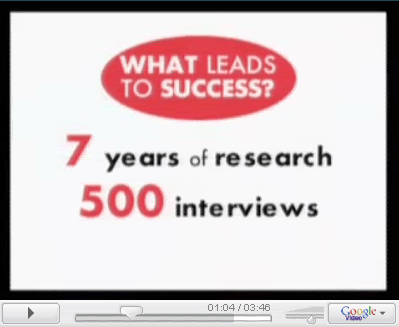Dear Friends,
I don't need to tell you negotiation is one of the primary skills in real estate, because you already know that.
Think about all the different people you negotiate with frequently:
- Other agents (referral fees, co-brokes, Rainmaker splits, contract terms on behalf of your client, etc.)
- Your clients (commission rates, inspection items, staging issues, open houses, offer or listing terms, etc.)
- Your broker (commission splits, desk fees, telephone charges, copy fees, advertising, etc.)
- Other parties (lenders, title companies, inspection companies, appraisers, etc.).
How effective you are at influencing or persuading other people determines your level of success in real estate.
- How good are you at negotiating or persuading others?
- Do you know the characteristics of successful negotiators?
- Can you ask questions different ways to get important information?
- Are you a trained negotiator who knows how to use persuasion principles and negotiation tactics skillfully to find a win-win solution?
- Can you deal effectively with highly competitive negotiators?
- Can you use proven persuasion techniques to increase your odds of success, or do you go by instinct and HOPE you will be successful?
- Do you use a planning tool to ensure success?
- Can you negotiate performance bonuses for your clients and yourself?
- Do you have specific techniques for dealing with deadlock situations?
- Do you know how to improve the chances of getting the lender to get loan documents to title on time?
- Do you know how to use emotions to influence negotiation outcomes?
Let's look at a few persuasion techniques trained negotiators use to convince the other party.
The Principle of Self-Interest states "people are more likely to do something if they perceive it to be in their best interest."
Your challenge is to show another party why it is in their best interest to do what you want them to do. Inherent in this principle is the understanding of what the other party believes to be in their best interest. You can find this out by asking the right questions of the other party to better understand their situation.
Let's look at the typical listing appointment:
If you are the listing agent dealing with a Seller, you want to find out what the Seller's needs and desires are before you launch into your listing presentation. By asking questions first you can then tailor your presentation to focus on and address the Seller's real or perceived needs and desires.
If the Seller is more interested in selling quickly, you may focus on how your marketing plan will expose their home to more potential Buyers, thus reducing the time to sell.
If the Seller is against having a lock box on their house, you have to try to convince them that it is in their best interest to have one (e.g. to make it easier/convenient for Buyers to view their home.)
What if the Seller wants to pay you a lower commission?
First, you have to ask questions to understand why they want to pay you a lower fee.
- Do they think you aren't worth that much?
- Do they have lower offers from other agents?
- Do they not have the money to pay you?
The focus here is always on the Seller's needs, not your personal financial or economic situation Don't say "I spend a lot of money on advertising so I need to charge a higher fee to pay for that advertising."
Do say "The extra advertising and marketing we do helps us average a 2% higher sales price for you in half the normal time".
Skilled negotiators know that following this principle is key to ultimately satisfying the other party.
Another very effective persuasion principle is the Principle of Reason or Sound Logic. This principle states that "people are more inclined to do what you ask if you give them a valid reason."
Additionally, if you can use a credible third party reference or some acceptable standard of proof (e.g. social standard, industry standard, organization standard, etc.) you increase your odds of success dramatically.
Using this principle to help justify your service fee, you might say to the Seller "Mr. Seller I have a track record of selling homes for a higher price and in a shorter time period than my competition. Here's the data." (You should always be able to back up your claims whatever they might be!)
As for the third party reference or standard of social proof, you might say something like:
"Ms. Seller, here is a Top Performer Award from my company and testimonials from past clients. You can see from these that I get top results for my clients and I'll get you the same top results."
If your Seller wants to ask top dollar for his home, you need to be able to provide credible, rational data to persuade the Buyer.
If on the other hand your Buyer wants to make a low offer, the more "reasons" you have for the low offer the better the odds of preventing a negative reaction from the Seller (once negative emotion is brought into the negotiation, your task becomes much more difficult!).
You can also try the Scarcity or Uniqueness Principle to convince your Seller or Buyer that you are unique and special and worth every penny you are asking.
"Ms. Seller, I am in the top 5% of all agents in my company because I get top results for my clients!"
or
"Mr. Buyer, less than 10% of all agents nationally have this designation and that means I am uniquely qualified to help you."
If you can position yourself as special in some meaningful way (having the most tattoos of any agent in the area probably won't do it!) you increase your odds of successfully influencing the other party.
Skilled negotiators also rely on the proven approach known as the Contrast Principle.
In this approach you try to make what you are asking for appear very reasonable versus another option.
For example you might say "Here are the 397 things I will do for you for the fee I charge." Then you pull out your long list of services to show what great value your client is receiving for your fee.
Or you might say "I know you can get a lower fee elsewhere but what have you really saved if you get a 1% lower fee and a $20,000 lower price for your home because the other agent isn't a trained negotiator?" Your challenge here is to make the contrast credible.
Here is a non-real estate example:
A teenager rings your doorbell and when you answer he says "Would you like to buy a $100 raffle ticket for a new car?" Most of us would say "No thank you." Then the teenager says "Well then, would you like to buy 5 $1 candy bars to help raise money for my charity?" It's a proven fact that you are more likely to say yes to this $5 request after having said no to the $100 request because the $5 request seems more reasonable than the initial $100 request. Makes sense doesn't it?
What happens if, after you use all your persuasiveness, the other party still wants you to do something different?
If you know how to make and take concessions in your negotiations, you know that you never give without taking.
For example, if you are asked to take a lower listing fee, it may be the perfect time to ask for a performance bonus in return!
As a well trained and skilled negotiator you will be able to do a much better job for your clients AND yourself!
For more information about The Certified Negoation Expert(CNE)tm Designation class for real estate professionals please click here.
On Your Team
Jeffrey Stanton ITI, CLC, CNE, WOW
Your Trusted Advisor For Life
347-466-3047
One of the fastest ways to build a successful business is by training. Now, with me, I like to invest significant time immersing myself in training, while some people prefer to take it in bite-size chunks. Whatever your preference is, now is the best time to contact me.
If you have found this tip useful, please share it with any friends, family, colleagues and associates who you think will be interested. Feel free to print it (with credit and subscription information) and continue to enjoy the tips. I am always grateful for any comments, criticisms or other feedback that you may have. Please send them to feedback@jeffreysjournal.com


































No comments:
Post a Comment